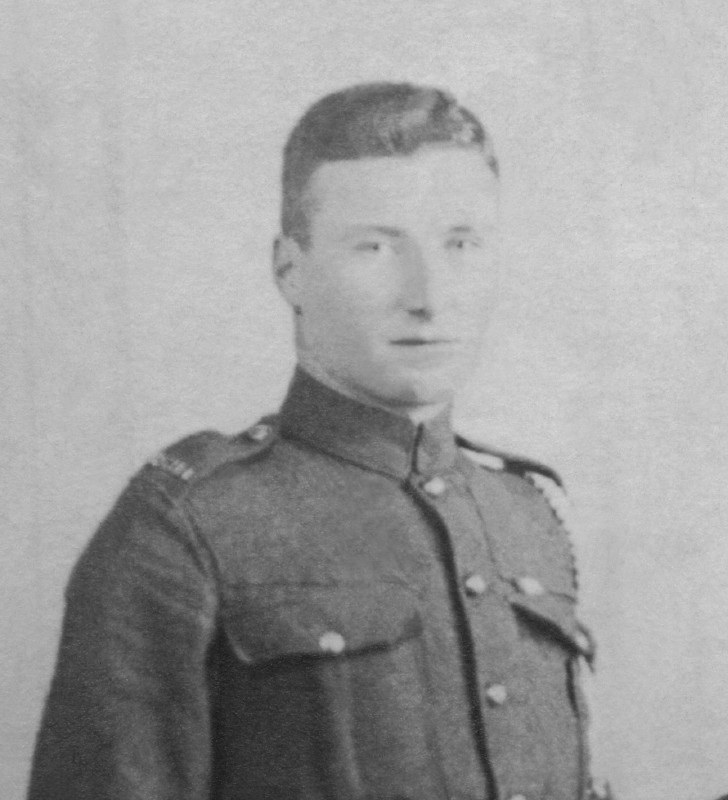Personal Profile Collections
James Roderick MacDonald
Short Biography:
James Roderick MacDonald was born on June 17, 1892, in Foxbrook, a neighbourhood of Westville, NS, the son of Thomas and Janet (MacKay) MacDonald. He went by his middle name but was often called "Red Rod" or Red Roddie".
James M. Cameron, in his 1969 book "Pictonians in Arms" wrote the following short history of Roderick's military service:
When a boy of 14 in 1906, he joined the Lansdowne Company of the Colchester Pictou 78th Regiment, under Captain G.A. Sutherland, and went to Aldershot Camp under name of Pte. Marshall, covering off a man’s vacancy of that name who at the last minute was unable to attend – a free and easy beginning, with more of this tactic, in a military career that was to span forty-six years. The next year he transferred to the Westville Company, commanded by Captain Struan Robertson, and a few months later, sans permission, joined the Pictou battery of artillery as a trumpeter. He attended camp training at Aldershot and Petawawa with the battery, and in 1908 attended a trumpeter’s course at the Royal School in Kingston. In 1909, after camp training in Petawawa, he enlisted as a trumpeter in “A” Battery of the Royal Canadian Horse Artillery, and spent the next three years at the Permanent Force stations in Kingston and Petawawa. He re-engaged for another three year term in the Permanent Force with the 3rd Medium Battery R.C.A., then stationed at Quebec; in 1913 he transferred to Number One Company of the Royal Canadian Artillery at Halifax, where he was stationed when the First World War began. Finding his duties as a coast artillery man in war not to his liking, he deserted in February 1915, to stow away on a troopship in Halifax Harbour, the Magantic, on board which was the 23rd Battery of the C.F.A., made up in part of his old associates of the Pictou Battery. His request to enlist in the 23rd Battery was denied. As a deserter, personally known to the 23rd Battery’s officers he was a problem. For sentiment’s sake it was difficult to “turn him in”, but, after all, he was a deserter, and an officer who knew this and recruited him would be in an awkward position if questions were asked. The problem was neatly overcome upon arrival of the troopship in England by taking him on strength of the 22nd Battery in the same Field Brigade as the 23rd Battery. He took the name of Mullins, which belonged properly to a 22nd Battery Irishman who deserted when the ship docked at Liverpool, and presumably made for old Erin with all speed. MacDonald, now Mullins, insofar as the Canadian Army was officially concerned, was shortly with others in Canadian batteries who had undergone Horse Artillery training, transferred to “R” Battery of the Royal Horse Artillery, to take further training as a horse artilleryman, and in October 1915 found himself a driver in France with “B” Battery of the R.C.H.A., side by side with his old barrack mates of “A” Battery of Kingston days. After the Battle of the Somme in 1916, he was granted the King’s Pardon, which wiped the desertion stigma from his record, and reverted to his rightful name of MacDonald. He was twice wounded. He took his discharge from the Permanent Force upon his return to Canada in 1919, and settled in Stellarton. The next year he joined the 83rd Field Battery as a sergeant; he was promoted to Battery Sergeant-major in 1924, and the same year was engaged by the Civil Service Commission as a caretaker of the Stellarton Armouries. He continued as B.S.M. of the 83rd Battery until war’s outbreak in 1939; upon formation of the 2nd Battalion of the Pictou Highlanders in 1940 he was first Company Sergeant-major and soon afterwards Regimental Sergeant-major of the Battalion, a post he held until his retirement from age in 1952.
Notes on the Collection:
Thanks to Hugh Muir for allowing medals, insignia, photos and documents to be copied for this profile.